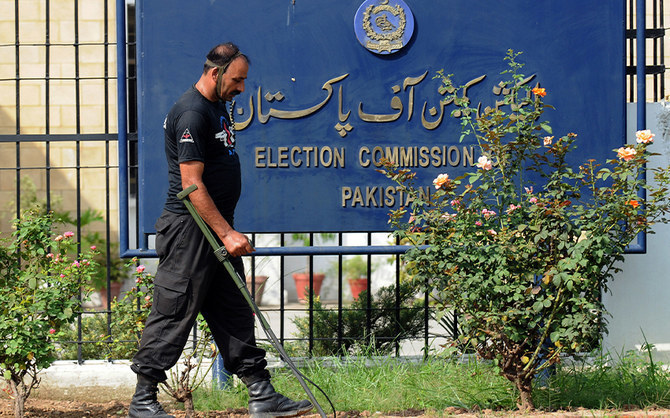ISLAMABAD: Pakistan’s electoral body on Thursday deferred notification of five new legislators on Punjab Assembly’s reserved seats for women and minorities until the by-election in 20 provincial constituencies following the de-seating of dissident lawmakers belonging to former prime minister Imran Khan’s Pakistan Tehreek-e-Insaf (PTI) party.
The reserved seats are allocated to parliamentary parties on a proportionate basis as per their strength in an assembly. Last month, the Election Commission of Pakistan (ECP) de-seated 25 dissident PTI lawmakers, including five legislators on reserved seats, for switching loyalties and voting for the Pakistan Muslim League-Nawaz (PML-N) party’s candidate for the position of Punjab chief minister.
The PTI had moved the ECP for the issuance of notification, though its petition was rejected when the election regulatory authority decided to wait until the by-election took place on vacant general seats.
“We deem it appropriate to defer the filling of vacant reserved seats till the outcome of by-elections on twenty general seats in the provincial assembly of Punjab,” the ECP said in a 13-page verdict.
Responding to the development, PTI vice president Chaudhry Fawad Hussain criticized the commission and vowed to challenge the verdict in the supreme court.
During the hearing, attorney general Ashtar Ausaf said the filling of reserved seats and proportional representation were interlinked. “If the number of general seats decreases, then the representation [on reserved seats] would not remain proportionate,” he said.
“The solution to resolve this controversy is to conduct by-elections on twenty vacant general seats and then calculate the quota for reserved seats on the basis of proportional representation of the parties in the assembly,” he added.
The ECP also went along with the same argument and disposed of PTI’s application.
“We have come to the conclusion that the scheme of proportional representation provided in the constitution is mandatory for filling of vacant reserved seats for women and non-Muslim,” it said.
















